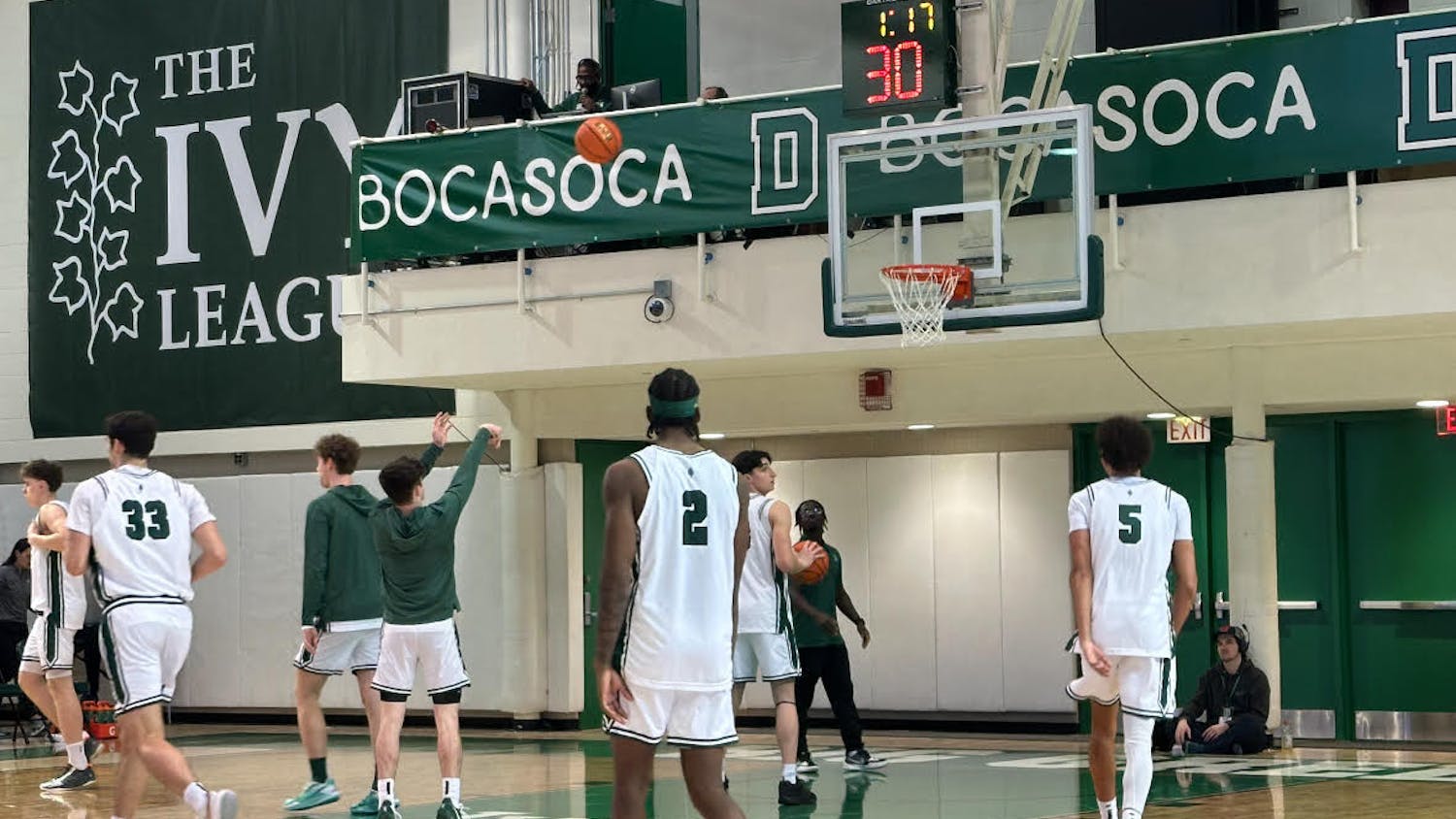With international students composing approximately eight percent of the Class of 2014, Dartmouth students come from a diverse range of geographical backgrounds. The value the College places on diversity is evident across athletics as well, as many varsity teams boast international students on their rosters.
The path international students follow to Dartmouth varies because international recruiting is often a challenge for coaching staffs at the College. The men's soccer team, for example, has discovered several of its international athletes through personal connections, according to men's soccer coach Jeff Cook.
"For example, with the New Zealand players on the team, we've had leads or contacts who have played for me in the past that connect us with them," he said, noting that such contacts often provide the easiest insight into foreign players. "That's been the initiation of the recruiting process for many players."
Cook said that men's soccer assistant coach Johan Cedergren has also recruited in Scandanavia where Cedergren is from which makes the process of contacting and communicating with athletes easier.
Cook said many American student-athletes have an academic advantage, having knowledge about the rigors of the college application process for several years. American student-athletes typically have more experience with standardized tests and essay requirements in the application process, according to Cook.
"Many times when we encounter international students, they never thought this was possible," he said. "So we have to educate them on the process, and that's the biggest hurdle to overcome initially."
Lucky Mkosana '12, one of the men's soccer team's star players, encountered this problem. He chose to play soccer at a sports academy for a year after graduating from his Zimbabwean high school, forgoing academics. Mkosana impressed Cook with his playing skills at a soccer showcase in Zimbabwe the following year, which caused Cook to reach out to Mkosana about playing for Dartmouth.
By the time Cook had seen Mkosana play, however, he had missed the College's application deadline, so Cook helped Mkosana arrange to attend Kimball Union Academy, a boarding school in Meriden, N.H., for an academic year.
Mkosana, who said he was initially unsure where he "was going to end up," applied to Dartmouth the next year, and matriculated at the College in 2008.
Other international students initiated contact with Big Green coaches themselves. Nejc Zupan '14, a member of the men's swimming and diving team from Slovenia, said he e-mailed coaches for information regarding the Big Green swimming program. After establishing contact, the coaches explained the recruiting process.
Once at Dartmouth, international student-athletes also face an academic adjustment.
"My high school was much easier much less work and much less intense," Zupan said. "Dartmouth, in terms of class structure, is definitely more intense."
Mkosana said Dartmouth's academics are difficult, but that he has received more support at the College than he did at his high school.
"I think adjusting to the teaching style and how lectures are conducted here was hard for me," Mkosana said. "But here, you have office hours and you can go ask for help. Back home when school was over it was like go home, go play soccer. Here there's time for outside help."
Zupan said the coaching style at Dartmouth differs from that in Slovenia.
"Here, swimming is a team sport, whereas at home it was more of an individual sport," he said. "I think it is a good thing because [Dartmouth] teammates help each other train, be faster and get better."
Zupan added that he appreciates the outside support the swim team's dynamic provides by helping with academic and other personal problems.
Cook said international students on the men's soccer team have significantly added to the program.
"We're really proud of [the international players]," Cook said. "Diversity is a strength of our program, and we've had a lot of success with our players both academically and on the soccer field."
Foreign students' varied backgrounds provides unique exposure to the team, according to Cook.
"It's a great experience for a kid from Boston to play with a kid from Norway," Cook said. "I think it brings a lot to our program."
Being many miles away from home can be difficult at times, according to Zupan and Mkosana.
"[Dartmouth] is a completely new environment," Zupan said. "I didn't know anybody before I came here. All of my friends are either back at home or in other countries and it's just completely new surroundings."
Mkosana said he has only returned to Zimbabwe once in the past four years.
Both athletes said, however, that they are pleased with their decision to attend Dartmouth, noting that fellow students have aided the transition process.
"People here are really nice," Zupan said. "And I feel like I integrated into the campus society pretty well."



